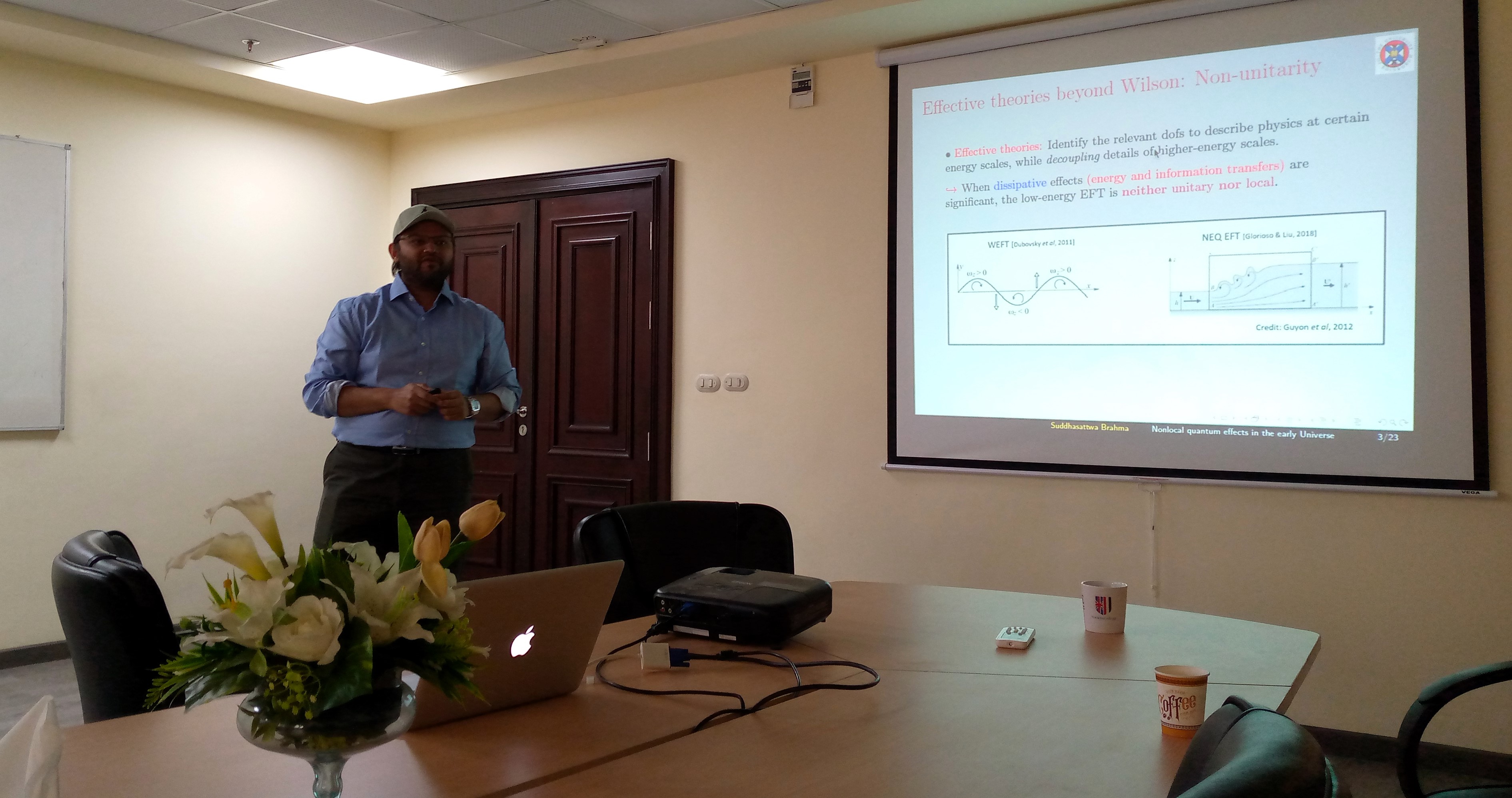CTP Seminar

Although inflation is widely regarded as the standard paradigm for the early universe, our understanding of its dynamics is necessarily incomplete. In this talk, I will treat inflation as an open quantum system and derive, in a systematic manner, quantum corrections to cosmological observables due to interactions with unobservable environments. For instance, the "cosmological horizon" is an example of a spacetime boundary that restricts our observable degrees of freedom while still allowing energy and information to flow across it into hidden sectors. Borrowing techniques from Quantum Information Theory, I will show how an Open Effective Field Theory formalism can incorporate non-unitary effects in cosmology and describe dissipation and decoherence of primordial fluctuations. I will emphasize that the out-of-equilibrium nature of gravitational systems necessarily result in non-Markovian dynamics and how this can lead to transient negative growth of entanglement entropy during inflation.
I will review recent results, and list outstanding challenges, of deriving an emergent spacetime from matrix models. I will give a proposal for how a metric can be coarse-grained from abstract matrix degrees of freedom, and how one naturally gets a scale-invariant spectrum of primordial perturbations in this model without introducing arbitrary tunable parameters, by considering a thermal state in this model. Time-permitting, I will describe how a "collective-field" formalism can be employed to describe the emergent spacetime.